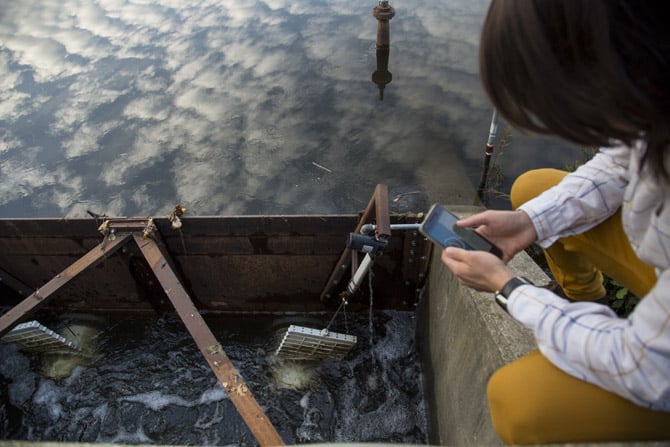Ecohydrology and Hydraulic Engineering

Well-maintained and properly allocated water resources are indispensable to economic vitality and community health. Civil and environmental engineering includes managing natural water systems and building water infrastructures.
Increasingly sophisticated process-based hydrologic models now enable detailed accounting of water budgets in watershed systems, providing a powerful tool for understanding how large-scale climate and weather events impact water resource availability at scales relevant to human actions and ecosystem services. Computational and experimental research identify how to exercise adaptive control of flow and mass transport to mitigate natural and man-made water hazards such as wave impacts, overflows of stormwater conduits and wastewater discharges from outfall structures.
Research areas of interest in the Ecohydrology and Hydraulic Engineering group include the following:
- Fish dynamics in response to flow signatures in natural habitats and impacts on stream restoration
- Laser-induced fluorescence and particle image velocimetry for environmental fluid mechanics
- The effects of boat wakes on shoreline restoration and fish habitats
- Physics-oriented models of water, energy and element cycles at the plant, hillslope, catchment and canopy scales
- Interplay between hydrologic and vegetation processes in land surface hydrology and catchment hydrological response
- Spatial variation of soil moisture and subsurface flow in complex terrain
- Impact of climate change on estuarine morphology and aquatic life
- Conjunctive modeling of surface and groundwater flow
- Mitigation of chemical spills in surface waters
- Models to investigate surging due to rapid filling of stormwater storage tunnels
- Design of armor stone layers for protection of contaminated river sediments
- Detached breakwaters for wave mitigation in harbors
Graduate Programs
Apply
Facilities